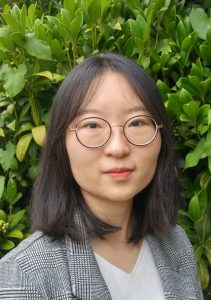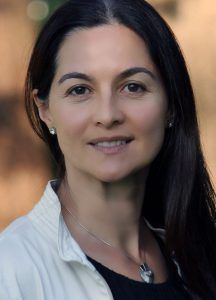Congratulation to the following six ECPS PhD graduates:
 Simon Lisaingo – SACP
Simon Lisaingo – SACP
Simon Lisaingo completed his doctorate in the School and Applied Child Psychology Program at the University of British Columbia. He was previously a classroom teacher in Vancouver, Ottawa, and the Yukon. When not working, he can be found on the soccer field or in the wilderness. He has two young boys who challenge him to appreciate the present moment.
Thesis Title: Small Challenges, Big Challenges: Understanding and Supporting the Development of Emotion-related Self-regulation in Schools
Dr. Lisaingo’s doctoral studies examined the development of a collaborative, consultative intervention for young adolescents with emerging emotional and behavioural difficulties. He developed and evaluated a model of consultation for working collaboratively with parents, teachers, and students. The findings of his research contribute to a broader understanding of the key characteristics and processes involved in student’s development of emotion regulation.
Supervisor: Dr. Laurie Ford & Dr. Nancy Perry

Minjeong Park – MERM
Minjeong has recently completed her Ph.D. in the Measurement, Evaluation, and Research Methodology program at UBC. She has a great interest in learning and applying various quantitative research methods to answer academic and practical questions. This led her to quantitative and psychometric research roles in various disciplines such as education, nursing, psychology, and environm
Thesis Title: Using Item Response Tree Models for Studying Response Behaviors
In psychological and educational testing, individuals’ response behaviors can have significant impacts on the meaning of the measured scores. The item response tree (IRTree) model is recently introduced as a promising tool for studying individuals’ response behaviors. This dissertation expanded the standard IRTree model to become a tool for explaining response behaviors by introducing the explanatory IRTree model. Moreover, this research showcased its applications in the context of studying two common response behaviors: response styles and item nonresponses. Study-1 investigated response styles (i.e., individuals’ tendencies to prefer or avoid particular response categories) when answering the psychological rating scale called Rosenberg’s Self-esteem Scale. Study-2 examined nonresponse behaviors (i.e., omitting the questions, not completing the test) in taking the reading test called Progress in International Reading Literacy Study. Through these applications, this dissertation showed the benefits of the explanatory IRTree model and discussed the implications of the findings from the two studies.
Supervisor: Dr. Amery D. Wu
Silvia Mazabel Ortega – SPED
Silvia is originally from Colombia and initiated her professional career in clinical neuropsychology in Argentina, where she worked with individuals with learning disabilities. Driven by her interest in promoting high quality teaching and learning opportunities for students to develop effective and meaningful learning skills, she completed her MA and PhD in Special Education in ECPS. To advance her professional and research interests, she has collaborated with educators in inquiry-focused processes to mobilize evidence-based pedagogical innovations to teaching practice. She’s currently appointed as a postdoctoral fellow in the Department of Earth, Ocean, and Atmospheric Sciences working in a teaching and learning enhancement project.
Thesis Title: Collaborating with University Instructors to Foster Self-Regulated Learning in Science Undergraduate Courses
With the goal of advancing teaching concerning SRL in postsecondary settings, my research sought to: document how a group of university instructors included SRL supportive practices (SRLSPs) in their undergraduate courses; probe instructors’ and students’ perspectives about SRL supports; and examine how instructors’ engagement in SRL-focused inquiry enabled them to enhance their teaching practice. Using a multiple-case study design, I partnered with five Science instructors at a Canadian university to form a Community of Inquiry (CoI). Through individual and collaborative inquiry, they learned about, designed, and implemented SRLSPs in a course of their choosing. Data collected revealed instructors’ SRL-focused teaching and their insights about the experiences of teaching for SRL and engaging in inquiry. Instructors’ data was enriched by interviews with a small group of students about their learning experience in these SRL-informed courses.
Findings suggested that the instructors infused their teaching with SRLSPs in meaningful/context sensitive ways and observed general positive effects on students’ participation and performance. Both the instructors and students perceived the implementation of SRLSPs as important to make a difference in students’ learning. The instructors perceived systemic, student, and instructor factors afforded and/or constrained their efforts at teaching for SRL and that the CoI model and inquiry processes were productive, validating, and led to sustainable changes to their practice.
Supervisor: Dr. Nancy Perry
Matthew McDaniel – CNPS
Thesis Title: How do community mental health workers maintain wellness while responding to the fentanyl overdose crisis?
Supervisor: Dr. Bill Borgen
Louai Rahal – HDLC
Thesis title: Participatory design in the special education classroom: designing technology with educators for students with autism spectrum disorder
Supervisor: Dr. Jenna Shapka
Jacqueline Maloney – HDLC
Thesis title: Student-teacher relationships, self-regulation, and social and emotional competencies in kindergarteners
Supervisor: Dr. Kimberly Schonert-Reichl
